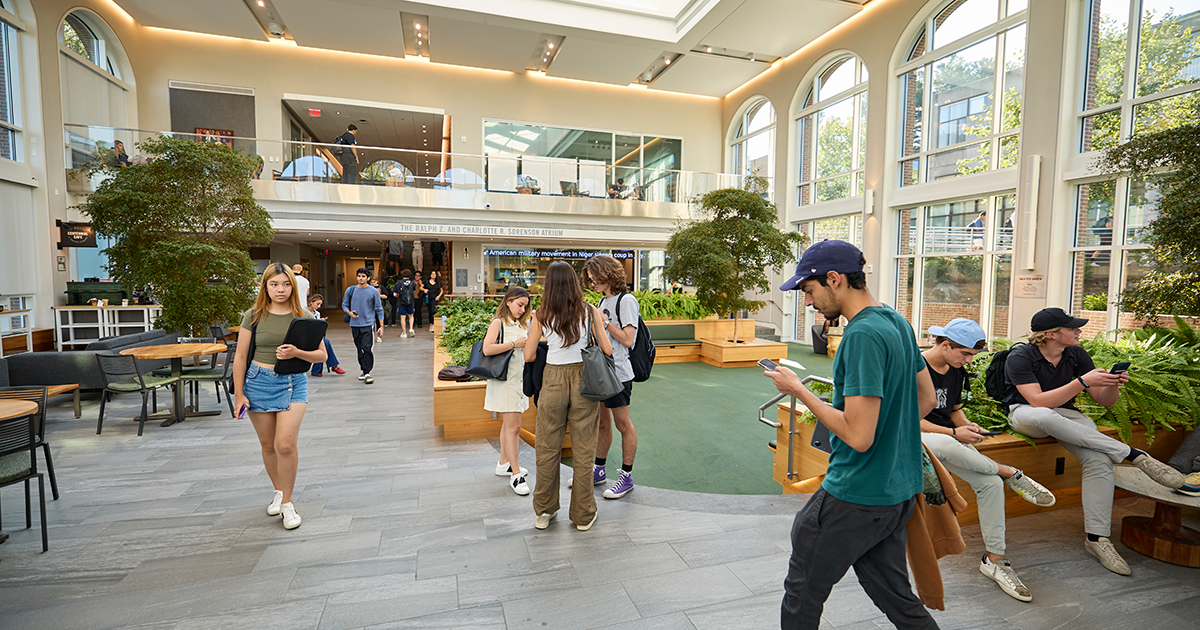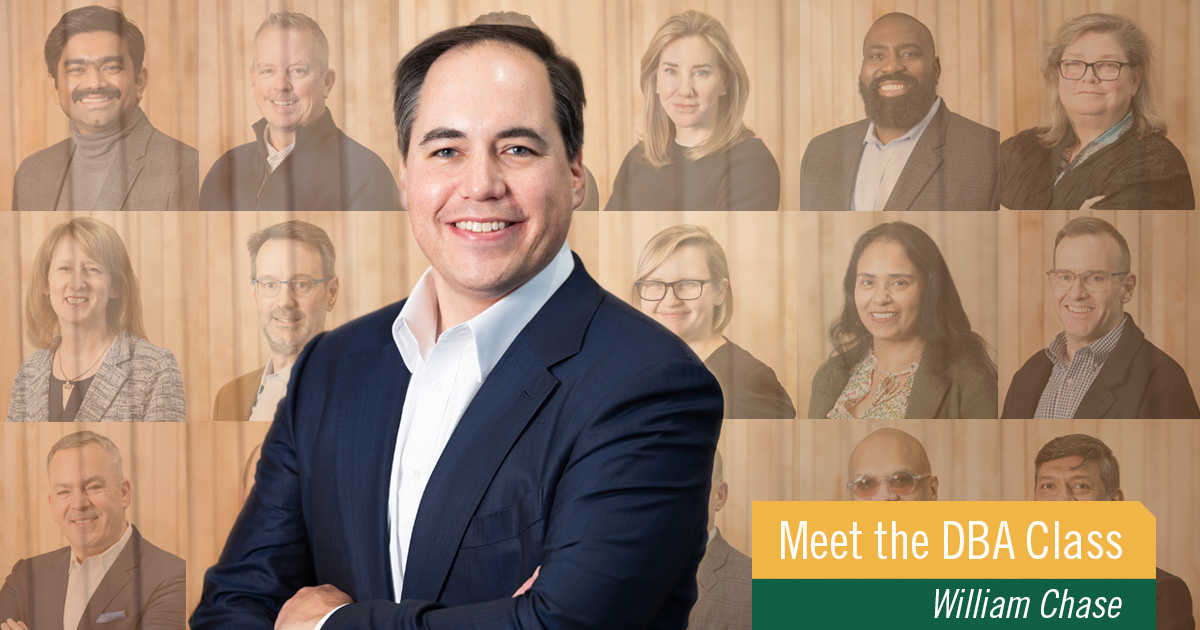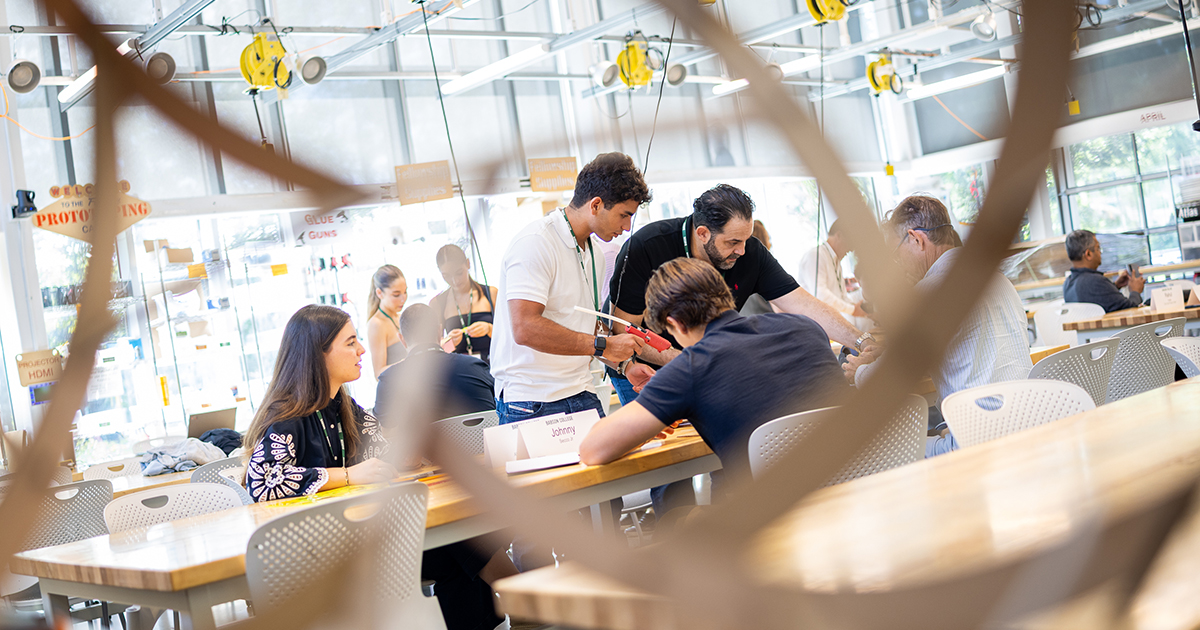Octopus, Social Innovation, and the Power of Narrative

How is a guy famous for eating raw dogfish fetus and sautéed goose intestine on television helping the Food Sol initiative of Babson’s Lewis Institute inspire solutions for food-related social problems?
On campus in October 2012 for Babson’s Food Day, Andrew Zimmern palms a can of Diet Red Bull while he describes the power of stories in his show on the Travel Channel. “Bizarre Foods is 80 percent entertainment because that engages people. But, I’m always screaming at the production company that 20 percent of the show has to be an intelligent message about exploring culture. The information is, it’s more fun, it keeps people coming back and we can educate them about health, wellness, food insecurity, local economies … you name it.”
Cheryl Kiser, director of the Lewis Institute, emphasizes the centrality of food to a host of social innovation possibilities, saying, “Food draws people to talk about everything from human slavery to sourcing, from obesity to starvation.”
“Food touches everyone on a daily basis,” Zimmern asserts. “You’ll never see a revolution take place because somebody took away people’s math. And, so solutions to food problems, especially when they’re performed through the prism of Entrepreneurial Thought and Action®, can radically change our world for the better.”
Asked to give an example of the power of narrative and food, Zimmern tells the following story:
“A Greek kid from Astoria, New York, marries into a 100-year-old crabbing company and moves to South Carolina. His contribution at Thanksgiving is octopus salad, and in New York he would buy frozen octopus from Mexico or Spain for $20 a pound. He sees an opportunity to produce fresh octopus in South Carolina, but all the fishing companies say, ‘No, octopus live and feed in rocks, and all we have is sandy bottom—no octopus here.’ So on a lark, he fills a whole bunch of PVC pipe with rocks and cement and makes a fake octopus condo two miles out in the ocean. He goes back two days later and pulls up the tubes, and they’re filled with octopus. They’re just swimming by South Carolina and they stopped in.”
“On TV, people see famous chefs like Jose Andres of Spain and Javier Placencia of Mexico doing amazing things with octopus, and they want to try it.” Combine the power of television to make a market, and an entrepreneur who ignores the experts, and you have a new business creating sustainable food where there was none.
Zimmern concludes, “So I see the dairy farmer in Iowa whose business is flat-lining between falling milk prices and lower corn subsidies, and I ask, ‘What’s your octopus?’ ”
Create narrative and forget the dry dissertations, says Rachel Greenberger, creator of the Food Sol action tank at Babson’s Lewis Institute. “At first, I told students, ‘Mega-data, mega-numbers, mega-details,’ and it just paralyzed them. It wasn’t memorable, it wasn’t resonant, and it didn’t stick. But, listen to what Andrew just said, and you can picture PVC pipe, ocean floors, octopus, and consumers wanting to try this new food.”
Zimmern says narrative also energizes people to get out and see the world, whether it’s right in their back yard or somewhere else. You do not have to travel to Namibia with a production crew to see it, he says. “Detroit’s broke, and its municipal park fields were waist-high in weeds. The urban farming movement inspired a bunch of middle-class gearhead dads to rebuild old tractors and race industrial mowers around the city parks to make them usable again! When you apply social innovation and the type of entrepreneurship that we’re talking about, that’s when real solutions come in to solve real world problems.”
Of course, it’s entertainment, and when eating goose guts gets your attention, it’s the platform for Zimmern’s advocacy: “Don’t be shackled by the familiar. Act into a possibility. Tell yourself an optimistic story of the future and then build like hell!”



